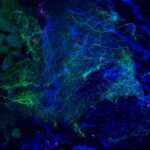Link to Pubmed [PMID] – 27616557
Link to DOI – 10.1016/j.it.2016.08.001S1471-4906(16)30090-4
Trends Immunol 2016 Oct; 37(10): 668-679
Neuroinflammation is common to various diseases of the central nervous system (CNS), but its imprecise definition has led to many misconceptions in research and clinical approaches. It is now recognized that neuroinflammation in chronic neurodegenerative conditions, including Alzheimer’s disease (AD) and age-related dementia, is distinct from the inflammation that accompanies relapsing-remitting multiple sclerosis (RRMS), and its experimental animal model, experimental autoimmune encephalomyelitis (EAE). Here, we discuss the discrete features of inflammation in different CNS pathologies, given the current understanding of the CNS-immune crosstalk; the roles of the immune cells that are involved, their phenotypes, and their location and route of entry to the CNS. Understanding the term neuroinflammation to encompass a broad range of disease-specific conditions is essential for finding effective therapeutic approaches for these pathologies.

